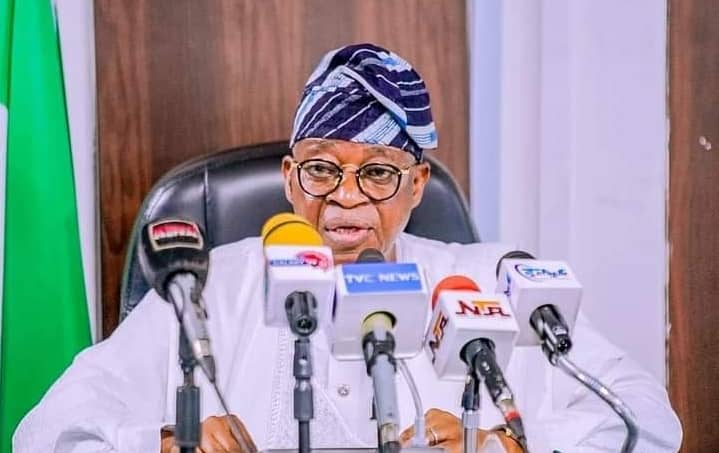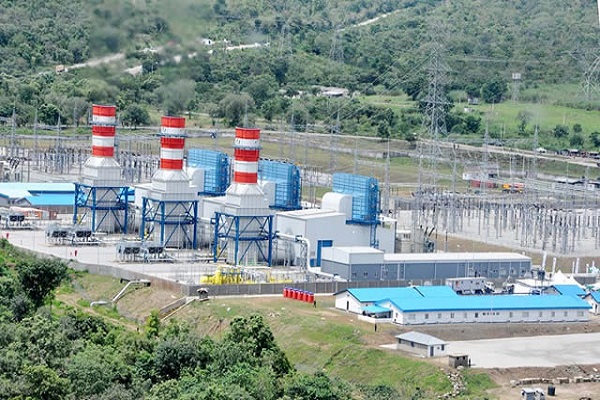Gboyega Oyetola
The federal government says it is putting strategies in place to sanction vessels that contravene the International Maritime Organisation sulphur regulations.
Adegboyega Oyetola, minister of marine and blue economy, disclosed this on Monday while speaking at the arrival ceremony of the largest container vessel, ‘CMA CGM Scandola’, at the Lekki Deep Seaport.
The vessel is said to be powered with liquefied natural gas (LNG).
The International Maritime Organisation’s 2023 greenhouse gas strategy, envisages a reduction in the carbon intensity of international shipping by at least 40 percent by the year 2030.
Advertisement
Oyetola, who was represented at the event by Mohammed Bello-Koko, managing director of the Nigerian Ports Authority, said the government is procuring the needed tools to enhance the capacity of the NPA for sulphur analysis.
“To put action behind our word, we have taken concrete steps towards the procurement of necessary tools to enhance NPA’s capacity for sulphur analysis as well as put in place a sanction regime for vessels who contravene the sulphur regulations,” he said.
“So transition to the use of natural gas which is more environmentally friendly by vessels plying our waterways is a most welcome development.
Advertisement
“This is driven by the larger national interest due to the fact that Nigeria’s gas quality is reputed to be high and virtually without sulphur.
“The ministry of marine and blue economy is convinced that shipping has a pivotal role to play in global decarbonisation efforts, this is why I would like to seize this moment to commend the management of the NPS’s compliance with the ministerial directive to take cognizance of global energy transition in its port modernisation project by deliberately factoring in measures that promote energy efficiency.”
Oyetola said aside from the vessel’s distinctive feature of eco-friendliness, ‘Scandola’ ranks amongst the largest container ships to be calling in West Africa with 15,000 twenty equivalent units.
Advertisement
Add a comment







